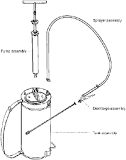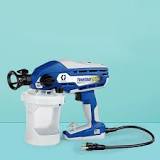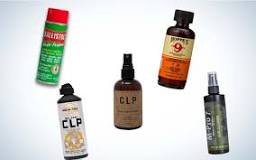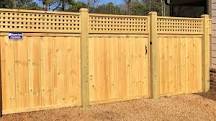So, you’re wondering, why can’t you put bleach in a pressure washer? The short answer is: it can seriously damage your machine, and it’s not safe for the environment. Let’s dive into the nitty-gritty of why bleach and pressure washers don’t mix.
The Dangers of Bleach in Pressure Washers
Damage to Components
First off, bleach is corrosive. When you pour bleach into your pressure washer, it can eat away at vital components like seals, hoses, and pumps. Over time, this can lead to leaks and costly repairs. Nobody wants to shell out extra cash when all they wanted was a clean driveway!
Environmental Concerns
Then there’s the environmental angle. Bleach can harm plants and wildlife if it runs off into your garden or nearby water sources. If you’re trying to make your home look good while being eco-friendly, using bleach is a big no-no.
Ineffective Cleaning
Believe it or not, bleach isn’t always the best cleaner for every situation. While it does kill mold and mildew, it doesn’t do much for dirt and grime. You might end up using more water and energy trying to rinse it all away than if you just used soap designed for pressure washers.
Alternatives to Bleach
Instead of bleach, consider using specialized cleaning solutions that are safe for pressure washers. These products are designed to tackle tough stains without causing damage. Plus, they’re often biodegradable, so you can clean without guilt!
Summary
In summary, putting bleach in a pressure washer is a bad idea because it can damage your machine, harm the environment, and isn’t even that effective for cleaning. Stick with products made for pressure washers to keep your equipment running smoothly and your surroundings safe.
FAQ
Can I use vinegar instead of bleach in my pressure washer?
Using vinegar is generally safer than bleach, but you should still check if your pressure washer can handle acidic substances. It’s less damaging than bleach but may not be as effective on tough stains.
What should I do if I accidentally put bleach in my pressure washer?
If you’ve accidentally used bleach, flush the system with plenty of water immediately. Run clean water through the machine until you’re sure all the bleach is out. It might also be wise to check for any signs of damage afterward.
Are there any homemade cleaning solutions I can use?
Absolutely! A mix of dish soap and water can work wonders for general cleaning. For tougher stains, try combining baking soda with water to create a paste. Just remember to avoid anything too harsh!
How often should I clean my pressure washer?
It’s good practice to clean your pressure washer after every use. This helps prevent buildup and keeps everything running smoothly. A little maintenance goes a long way!







